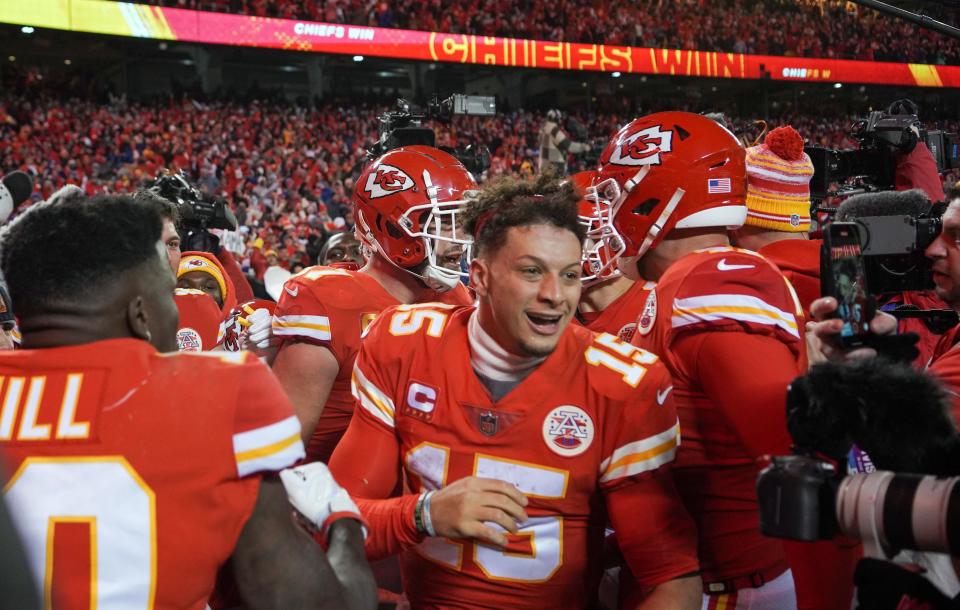NFL has different overtime rules in playoffs. Here's how they work.
The NFL, over the past several seasons, has refined its playoff overtime rules, with the most recent tweak coming in 2022.
The rule was adopted in March 2022, and came in response to an instant classic in the divisional round between the Buffalo Bills and Kansas City Chiefs. In that game, an eventual 42-36 Bills loss, Buffalo and quarterback Josh Allen did not have the chance to possess the ball, despite a frenetic end to regulation in which both teams combined for 25 points inside the final two minutes of play.
The rule change, a modified version of the proposal set forth by the Indianapolis Colts and Philadelphia Eagles, was adopted at the 2022 annual meetings in Palm Beach, Florida.
Overtime in the regular season was not impacted.
Here's how overtime in the NFL works during the playoffs.
FEELING SUPER?: Who is playing in Super Bowl 58? Breaking down the NFL playoff bracket
NFL PLAYOFF BRACKET: Details on matchups and odds for the 2024 NFL playoffs

How does overtime work in NFL playoffs?
The format is quite similar to what fans are accustomed to in the regular season, with two significant exceptions: Both teams will have the chance to possess the ball and games cannot end in ties.
There is a three-minute intermission after the end of regulation, leading to a midfield coin toss exactly like the one at the start of games, during which the visiting team captain makes the call. The winning team can either choose to receive or kick the ball, opt to defend a certain goal post or defer the decision. If the team that receives the ball first scores a touchdown on its first possession, the game will continue and the second team will have the chance to possess the ball. If the game remains tied after the second team's possession ends, then sudden-death rules will apply: first score wins.
What happens if the game remains tied after one overtime period?
If the game is still tied at the end of the first overtime period, or if the second team's initial possession still has not concluded, the teams will play another period. Thereafter, play will continue until an eventual winner is determined, regardless of how many overtime periods are necessary.
In between each overtime period will be a two-minute intermission, though there will not be a halftime at the end of the second overtime period. The timing rules that apply to the second and fourth quarters of regular-season games – such as two-minute warnings and clock stoppages when players run out of bounds – will also apply in the second and fourth overtime periods.
If there is no winner at the end of a fourth overtime period, another coin toss will take place and play will resume.
Why did NFL make changes?
The playoffs remain the showcase of the NFL season, and extending tied games so that both offenses can possess the ball is a calculated move that only adds intrigue and value for fans watching games.
From 2010-2021, when the NFL implemented its previous standard for playoff games, seven of the 12 overtime games were won on an opening-possession touchdown, and 10 of 12 were won by the team that won the coin toss.
"That data was compelling to us and to the league," Falcons president and chairman of the competition committee Rich McKay said in March 2022. "An amendment was added (to the original proposal by the Colts and Eagles) to not make a change in the regular season, but in the postseason, where our problem principally lies."
Contributing: Michael Middlehurst-Schwartz
This article originally appeared on USA TODAY: NFL playoff overtime rules explained: Everything to know for playoffs

